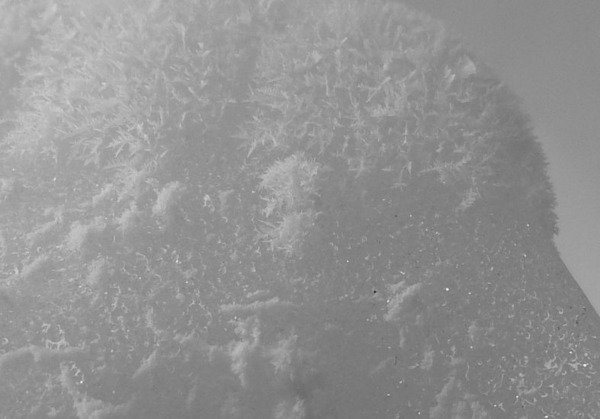Evelina Rajca
dal 24/4/2013 al 6/7/2013
Segnalato da
24/4/2013
Evelina Rajca
Ernst Schering Foundation, Berlin
Anaesthetiker - a neologism coined from 'aesthete' and 'anaesthetic' - is a complex mixed media installation specifically created. The artist shows experimentally to what extent the density and aggregate state of matter influences the presumed presence or absence of options for action.

In her exhibition, “Anästhetiker” the The-Hague and
Cologne-based German artist Evelina Rajca (*1984)
shows experimentally to what extent the density and
aggregate state of matter influences the presumed
presence or absence of options for action.
“Anästhetiker” – a neologism coined from “aesthete”
and “anaesthetic” – is a complex mixed media
installation specifically created for the Project Space
of the Ernst Schering Foundation.
In a two-channel video projection, Rajca presents an
experiment with solid carbon dioxide (CO2), which
doubles as a compositional sound study. Solid
carbon dioxide, also known as “dry ice,” does not
naturally occur on earth, but is an industrial product used, for example, for the cooling of food. As it
changes from solid into gaseous form, there develops a gas cushion around the carbon dioxide,
which, when pressed against a suitable resonating body made of metal, generates extraordinary
vibrations. This results in a variety of sounds – cries, sighs, calls of delight and of horror – that are
based on different parameters such as volume, surface structure, and temperature of the materials
and thus can be deliberately modulated by the artist.
The influence of the movement of sound conglomerates in space as well as their duration and
concentration play a crucial role in Evelina Rajca’s artistic research. Based on their vibrations and
changes in aggregate state, she analyzes their importance and examines their meaning and
“cancellation” Depending on its density, carbon dioxide has different effects: analgesia – anaesthesia –
death. Since the density and aggregate state of a substance determines its level of toxicity, keywords
and ideas such as irreversability and fetish are also of central importance in the exhibition – and play a
role in another exhibit on display: a “cootie catcher” made from antique, radioactive uranium glass
plates.
ACCOMPANYING PROGRAM
Dry ice symphony in public space
Sunday, July 7, 2013, at 3 pm
Starting Point: Ernst Schering Foundation | Unter den Linden 32-34 | 10117 Berlin
As part of the exhibition, a dry ice symphony will take place in public space, when visitors can
experience the generation of sounds on site. The artist will start at the Ernst Schering Foundation and
move with a dry ice orchestra through Berlin’s urban space, eliciting sounds from metal items such as
staircase railings, scaffoldings, bridges, garbage cans, monuments, sculptures, and street lamps by
touching them with solid carbon dioxide. The route metaphorically outlines the variable score of the
symphony, with the metal items in public space serving as its “notes”. At the end of the performance,
some of the “instruments” – corpora delicti – will have dissolved into gas, the material present in public
space becomes part of a symphony, and the public space becomes a potential form of composition.
Talk
Sunday, July 7, 2013, at 4 pm
Ernst Schering Foundation | Unter den Linden 32-34 | 10117 Berlin
Following the dry ice symphony, the Project Space of the Ernst Schering Foundation will be hosting an
artist’s talk with Evelina Rajca, Dr. Karin Harrasser (Linz University of Arts and Industrial Design), and
guests on the poetry and duration of matter.
Image: Evelina Rajca, cristals, © archivedprocesses
Press contact:
Andrea Bölling, Public Relations Tel.: +49-30-20 62 29-60 boelling@scheringstiftung.de
Press preview: Thursday, April 25, 2013, noon – 1 pm. The artist will be present.
Opening: Thursday, April 25, 2013 at 7 pm
Ernst Schering Foundation
Unter den Linden 32-34 - 10117 Berlin
Monday through Saturday: 11 am – 6 pm, except public holidays
free entry



